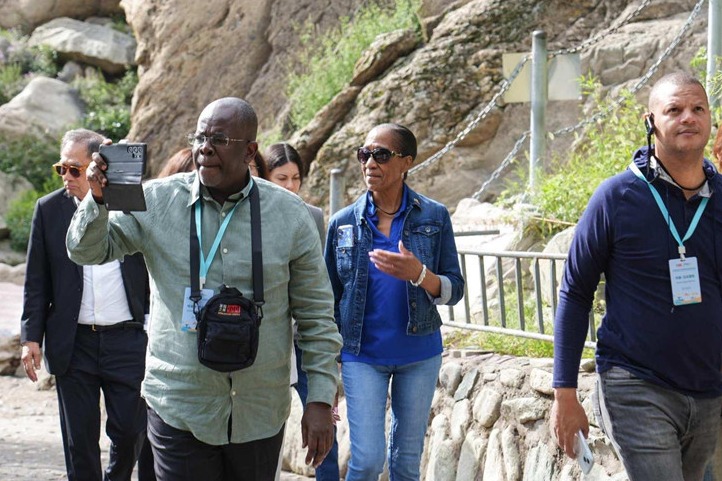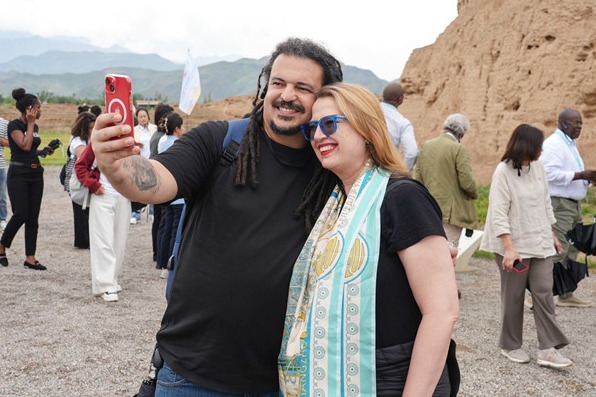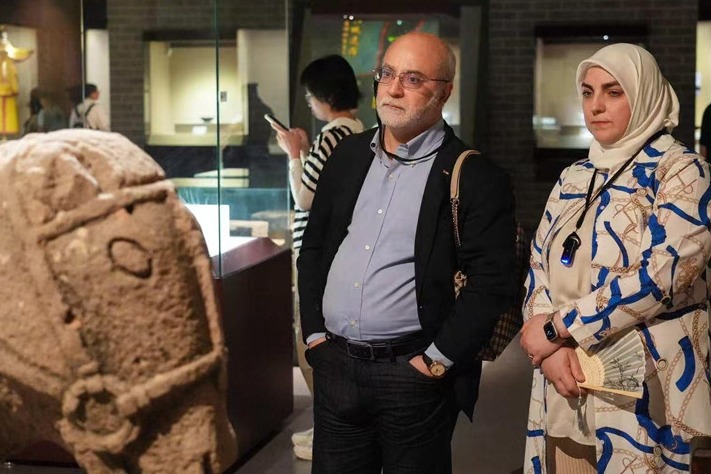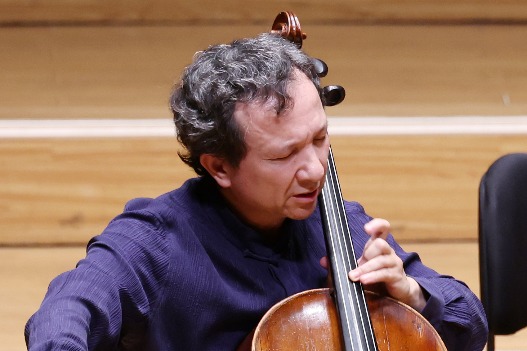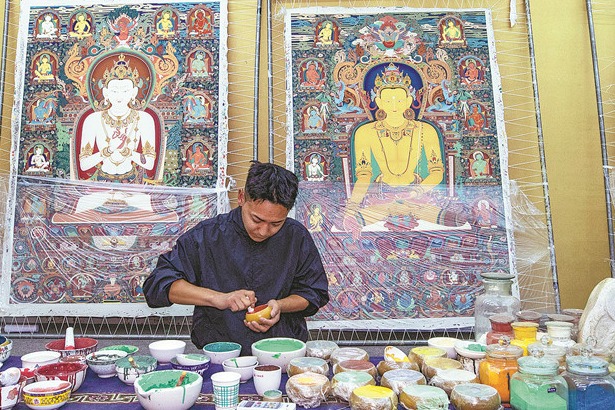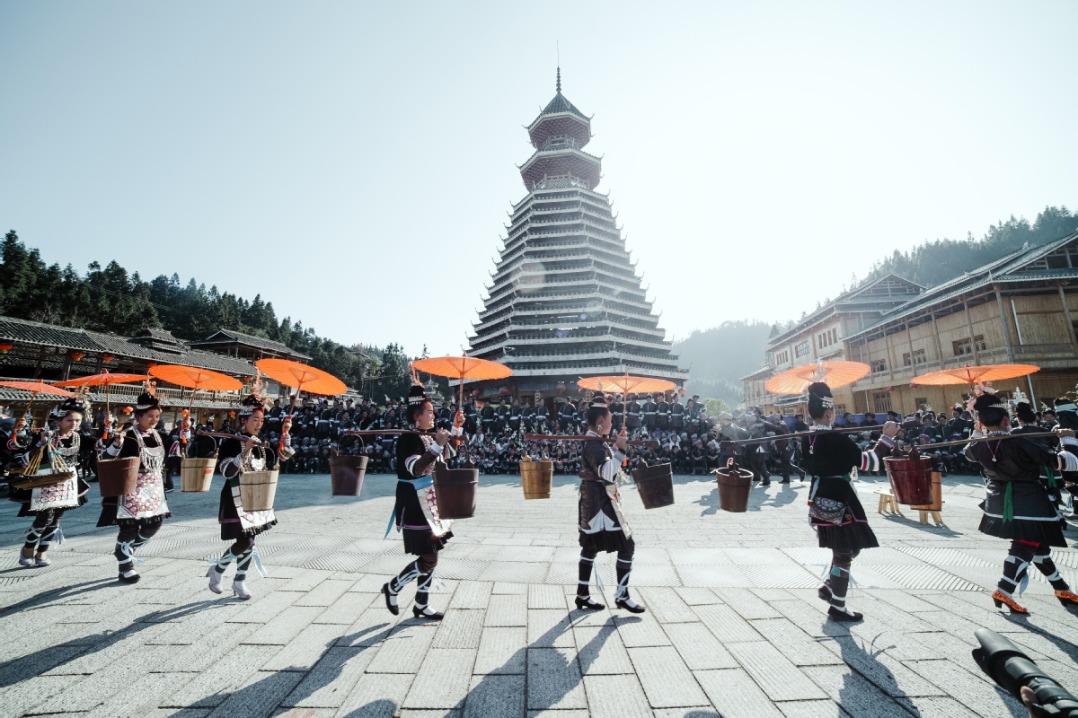Guardians of a vanishing song
Dong ethnic group preserves its centuries-old tradition with ancestral memory, cultural pride and communal identity, Chen Nan and Liu Boqian report.

In the small, picturesque village of Xiaohuang, nestled deep in the heart of the Dong ethnic region of Congjiang county, Guizhou province, an ancient tradition still resonates.
The dongzu dage, or Grand Song of the Dong people, continues to echo through the voice of one remarkable woman: Pan Sayinhua.
At 82 years old, she remains one of the last great bearers of this living tradition. A national-level inheritor of the dongzu dage, she has spent her entire life singing, teaching, and preserving the music that defines the identity of her people.
Unlike much traditional Chinese music, which is often monophonic — built on a single melodic line — the Grand Song is polyphonic, weaving multiple independent vocal lines into breathtaking harmony. The result is a layered choral sound both ethereal and powerful, captivating listeners across generations.
Sung almost exclusively a cappella, the harmonies are complex. Singers rely on their vocal strength and ability to harmonize in ways not commonly found in other traditional music.
In recognition of its uniqueness and cultural significance, UNESCO inscribed the Grand Song of the Dong ethnic group on the Representative List of the Intangible Cultural Heritage of Humanity in 2009.
On March 17, President Xi Jinping visited a Dong village of Zhaoxing in Liping county, Guizhou. There, he watched a Grand Song performance and toured the village to observe its landscape and the Dong culture display center.
Xi remarked that the stilted houses, ancient villages, traditional musical instruments, the Grand Song and batik craftwork — these ethnic characteristics are both ancient and modern treasures.


















